|
To see long excerpts from “In Paradise” at Google Books, click here.
|
“In Paradise”
A book by Peter Matthiessen
What a haunting and bewildering novel “In Paradise” is. Months ago, Peter Matthiessen predicted it would be his “last word,” and now, sadly, we know he was right. The author, who died recently at the age of 86, wrote more than 30 books during his extraordinary career and is the only person to win National Book Awards for fiction and nonfiction.
Long a practitioner of Zen Buddhism, Matthiessen always addressed big, complex themes, especially on natural history and the environment, and his final novel ventures to Auschwitz to confront the Holocaust. It does so in the most self-conscious way possible: by describing a writer venturing to Auschwitz to confront the Holocaust. The result is part reflection, part cultural criticism and, oddly, part romance.
The starkly ironic title of “In Paradise” comes from the Gospel of Luke, during the crucifixion of Jesus, and it signals the Jewish and Christian themes wound through the novel’s dark matter. Inspired by Matthiessen’s participation in a Zen retreat at the Nazi death camp, the story details a week in 1996 when 140 pilgrims from around the world commit themselves to “homage, prayer, and silent meditation in the memory of this camp’s million and more victims.” Among these strangers are scholars and priests, relatives of the murdered and the murderers, guilt-ridden Germans and defiant Poles. Ostensibly, they’ve come to bear witness, but most can’t articulate what draws them to this grief-soaked place.
Matthiessen approaches the Shoah as delicately and apologetically as anyone could, and to a large extent “In Paradise” is about the fraught challenge of considering this unparalleled horror without being maudlin, melodramatic or self-indulgent. Denial of the Final Solution is the most grotesque affront, and ignorance about it is perhaps even harder to fathom, but Holocaust voyeurism is the subtler form of disrespect that Matthiessen condemns in this novel. No one, he emphasizes, should imagine that the pain of seeing the pits and the ovens provides any real sense of what the victims experienced.
The central character of this ruminative book is Clements Olin, a 55-year-old American academic who was born in Poland but shipped to America as an infant. Although he has built his career on the study of Holocaust literature, early in the novel he disavows any special expertise. As is often the case in these pages, one gets the sense that Matthiessen is speaking directly through his narrator: “Olin tends to agree with the many who have stated that fresh insight into the horror of the camps is inconceivable, and efforts at interpretation by anyone lacking direct personal experience an impertinence, out of the question.”
Oddly, Olin has never been to Auschwitz, although his grandparents were Polish aristocrats and his unwed mother vanished from this area during the war. He has come back to his birthplace, he tells himself and others, to complete research on a book about Tadeusz Borowski, the writer who survived the concentration camp only to take his own life in 1951 at the age of 28.
Restricted to the narrow, repetitive and mostly silent activities of this death-camp retreat, “In Paradise” moves through the week in a series of precisely drawn moments and memories as the participants tour the railroad tracks and the decrepit crematoria. Matthiessen’s descriptions are poetic and scarifying. Without stooping to genocide pornography, he creates indelible vignettes about what remains and what took place here. No reader will ever forget his brief, piercing visions of terrified children pulled from the trains or panicked women shut up in the gas chambers.
And yet the book continually undercuts itself and questions its own motives. “By now,” Olin thinks, “every adult in the Western world has been exposed to awful images of stacked white corpses and body piles bulldozed into pits.” Who needs “the unearned indignation of some damned onlooker from abroad who has no connection to the place and no meaningful witness to contribute”?
That debate frequently breaks out of Olin’s head during the group’s evening meetings when members are invited to speak extemporaneously. Most are stunned into silence by glimpses of the abuse their ancestors endured or perpetrated. But there’s one obnoxious guest, a man named Earwig, who gives off a “constant air of bitter amusement.” He serves as a kind of vicious court jester, mocking those who testify, scorning their sentimentality, rejecting their New Age rubbish about “closure” and “healing.” He provokes some speakers to tears and others to rage, but despite the often violent tension among them, the members keep meeting, stumbling along in the darkness of their own grief, shame and confusion. Their reward — a moment of surprising communion — provides the novel’s loveliest scene and demonstrates the sonorous beauty of Matthiessen’s prose.
Unfortunately, we come to know the many people in this retreat only superficially. Flashbacks to Olin’s childhood with his exiled Polish grandparents provide richer characters and more complex dynamics. Here, Matthiessen explores the subtler expressions of anti-Semitism mingled with classicism that kept young Olin ignorant about his mother’s fate and his own identity. Those memories circumscribe a secret that’s eventually revealed in a surprisingly overplayed scene that readers will anticipate long before it arrives.More problematic is Olin’s attraction to a strident young nun who’s also attending the death-camp retreat. At first, when Olin has a clear sense of the ridiculousness of his desire, this subplot adds a degree of emotional variety to the novel’s grim tone, and it rounds out our understanding of a lonely man, bumbling around with his errant affections. But as the conclusion nears, the novel’s focus splinters. We’re drawn cursorily into administrative battles within the Catholic Church. Weirder, Olin’s impossible tryst with the nun hijacks the novel, and Matthiessen himself seems seduced by the romantic possibilities. His prose grows flush with loveliness and pathos that feel incongruous given the context and theme of the story: “At this fateful instant of his life, right before his eyes, this girl whose warmth and lovely form he will never embrace and cherish is vanishing forever as he stands there watching, and he is astonished by the violence of his loss.”
Amid the shadows of Auschwitz and the violence of the incalculable loss that took place here, Olin’s romantic sorrow — no matter how heartfelt — sounds jarringly irrelevant. But perhaps, as the participants at this retreat discover, no response can be appropriate or adequate or beyond reproach. Like the rest of Matthiessen’s vast body of work, “In Paradise” leads us into questions that define our most profound mysteries.
Ron Charles is the deputy editor of The Washington Post’s Book World.
©2014, Washington Post Book World Service/Washington Post Writers Group
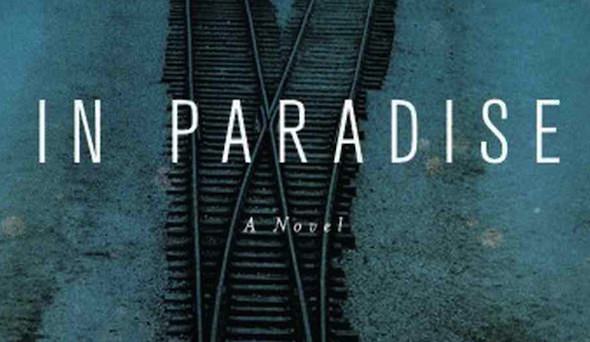


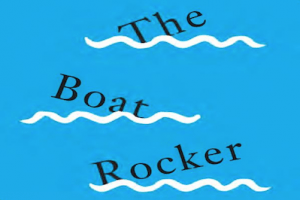
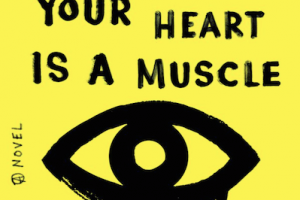
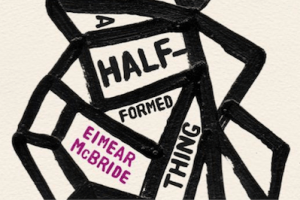
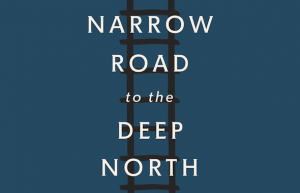
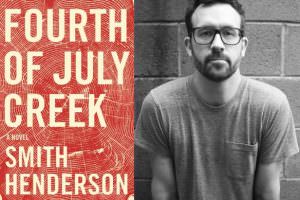


You need to be a supporter to comment.
There are currently no responses to this article.
Be the first to respond.